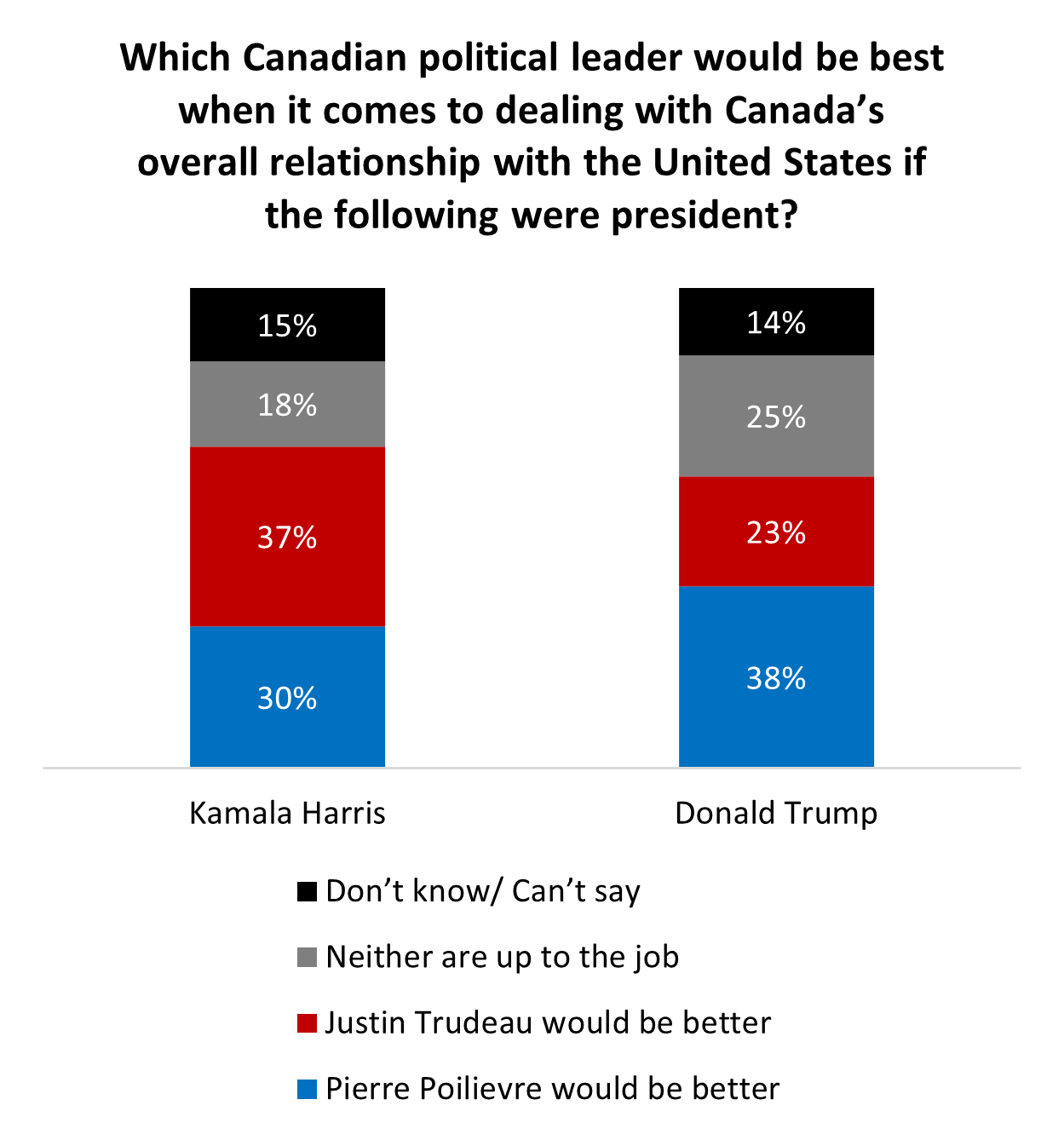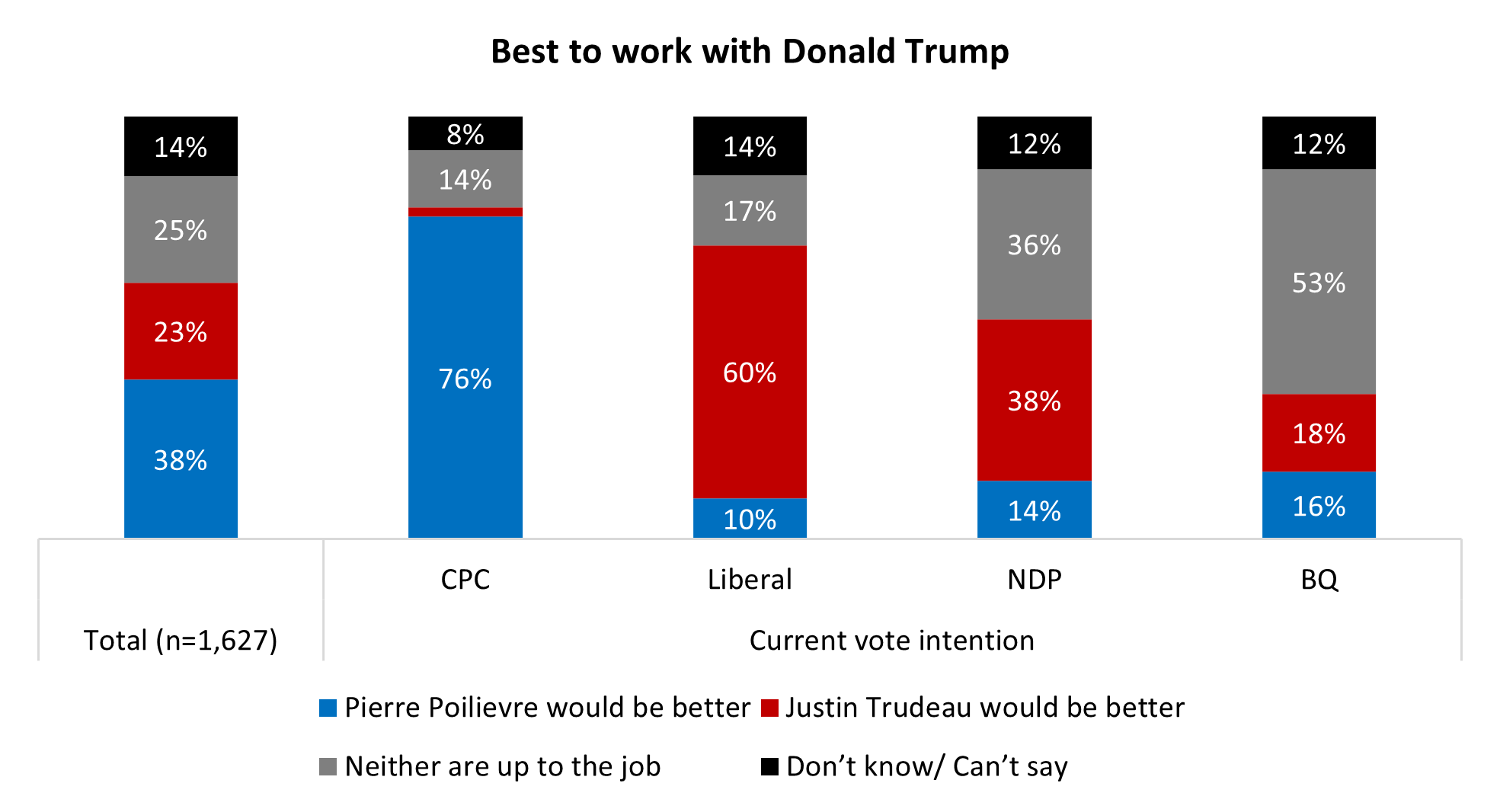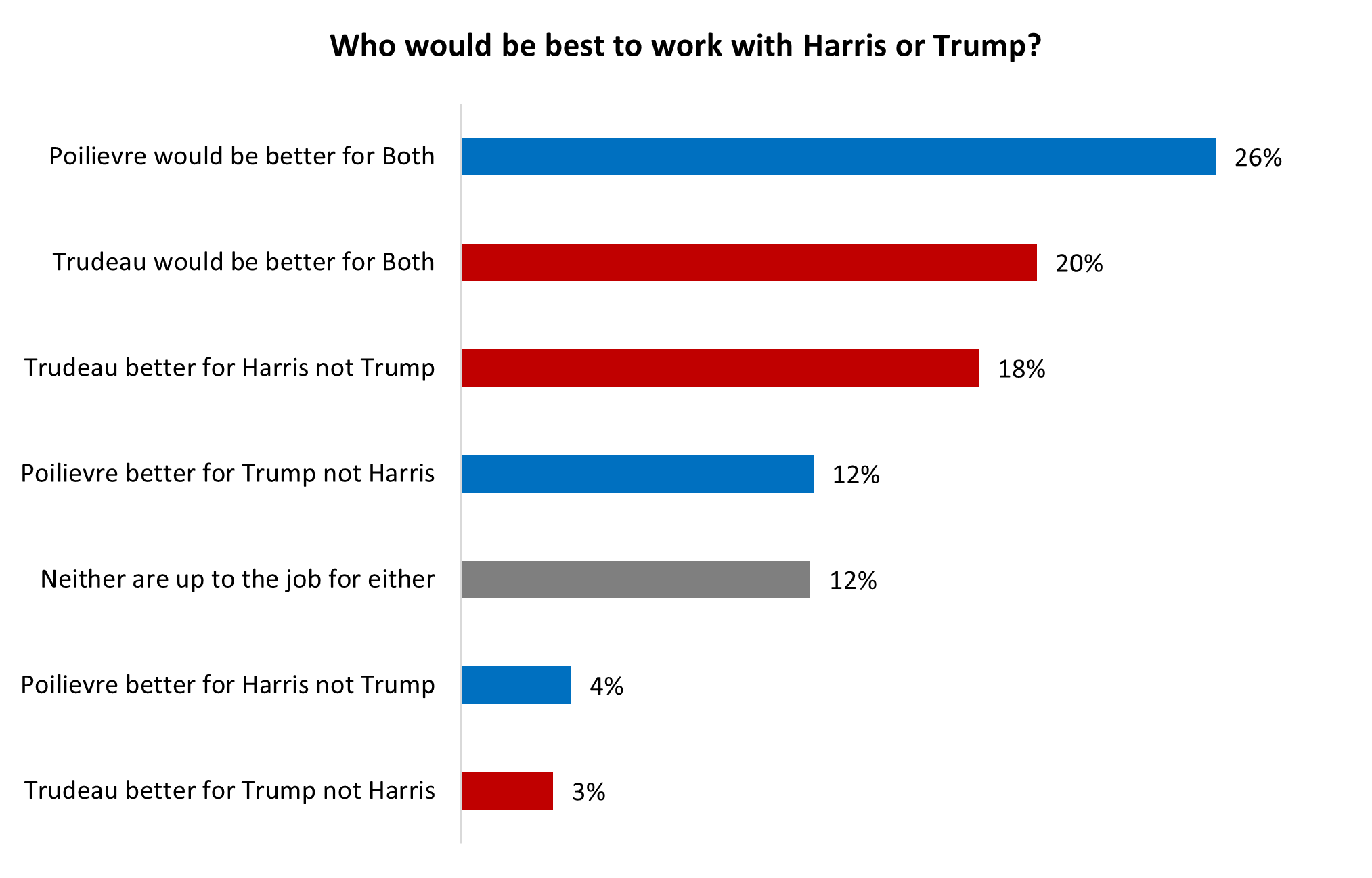Significant regional variation over which leader is best suited to handle the next American president
November 4, 2024 – Canadians will join their American neighbours in watching results pour in tomorrow night for the U.S. election. Will Donald Trump become only the second president elected for a second non-consecutive term (Grover Cleveland, for the U.S. history buffs) or will Vice President Kamala Harris become the first woman to hold the nation’s top job?
Regardless of who wins, the result will have a significant impact on Canada, as the United States remains this country’s closest ally and trading partner. Both Prime Minister Justin Trudeau and opposition leader Pierre Poilievre will make the case that they’re better suited to manage this relationship, whomever is in the White House. New data from the non-profit Angus Reid Institute finds Canadians looking ahead to the next four years and uncertain about which of the two likely Canadian Prime Ministers for this period would be best to deal with the winning American presidential candidate.
Prime Minister Justin Trudeau, who has had a first run at dealing with Trump as president, from 2017 to 2021, is not seen as the best option to work with him this time around. That title falls to Poilievre. Two-in-five (38%) say Poilievre would be best, compared to one-quarter (23%) for Trudeau. That said, Trudeau is seen as better to handle a relationship with Harris over Poilievre by seven points (37% to 30%). At least 18 per cent of Canadians feel neither Poilievre nor Trudeau will do a good job regardless of who wins the election.

About ARI
The Angus Reid Institute (ARI) was founded in October 2014 by pollster and sociologist, Dr. Angus Reid. ARI is a national, not-for-profit, non-partisan public opinion research foundation established to advance education by commissioning, conducting and disseminating to the public accessible and impartial statistical data, research and policy analysis on economics, political science, philanthropy, public administration, domestic and international affairs and other socio-economic issues of importance to Canada and its world.
Regional perspectives on the President – Prime Minister relationship
Canada’s largest trading partner will have a new president-elect this week, though some speculate we may not know the winner on election day. Given the importance, economically, culturally and from a security standpoint, of the Canada-U.S. relationship, the Angus Reid Institute asked Canadians which of the two federal party leaders in Canada most likely to form government they feel is more suited to handle the relationship with each potential president.
When it comes to Harris, a figure much more enthusiastically viewed in Canada than her opponent, the current prime minister is viewed as the top choice by 37 per cent compared to Poilievre at 30 per cent. Trudeau is the top choice in B.C., Ontario, Quebec, and Atlantic Canada:

Across the political spectrum, views are divided. Two-thirds of would-be CPC voters say Poilievre would be preferable to work with Harris, while four-in-five Liberal and two-thirds of NDP voters choose Trudeau. Bloc Québécois voters lean more heavily into skepticism that either would be effective:

Trump had a rocky relationship with Trudeau during his first term. Though the two started on good termsrelations soured. Trump called the Canadian PM “two-faced” after video surfaced of Trudeau and other world leaders reportedly joking about Trump. Since leaving office he has called Trudeau “weak” and a “far left lunatic”. The Liberal government has also made an effort to tie Poilievre to Trump and his divisive politics. Current polling suggests that correlation hasn’t borne much fruit.
For their part, Canadians prefer Poilievre to have a go at the Trump relationship, rather than have Trudeau take it on a second time. Two-in-five (38%) say Poilievre is better suited, while 23 per cent say Trudeau would be. That said, one-quarter say neither (25%) are up to the job. Notably, Poilievre is the top choice in every province, other than in Quebec, where “neither” wins:

Poilievre receives more confidence among Liberal and NDP voters in this scenario but remains relatively uninspiring for these groups. The larger factor at play here is that every group is more likely to say that neither individual is up to the job with the unpredictable Trump at the helm:

Breaking this down in another way, one can see the full diversity of Canadian opinion. By combining responses to each question, we see that one-quarter of Canadians (26%) say Poilievre would be better to handle both U.S. leaders, while one-in-five say Trudeau would be best on both. Another group feel Trudeau is better for Harris but not Trump (18%) or that Poilievre would be best for Trump but not for Harris (12%):

For detailed results by age, gender, region, education, and other demographics, click here.
For full release including methodology, click here.
MEDIA CONTACT:
Shachi Kurl, President: 604.908.1693 [email protected] @shachikurl
Dave Korzinski, Research Director: 250.899.0821 [email protected]

/images/035ce900/d451/47bc/9d8f/323005192371.jpg)